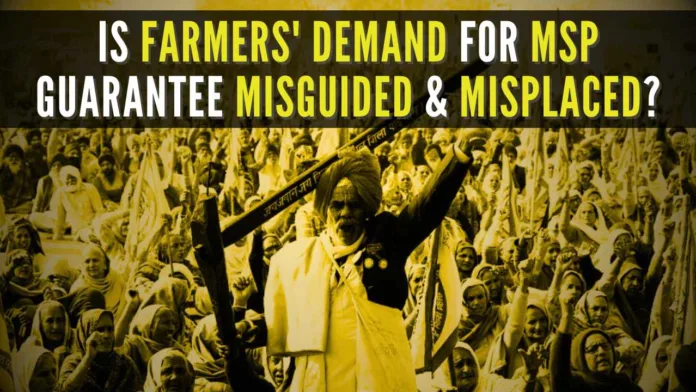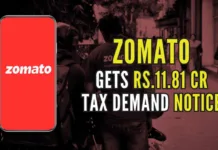
Farmers’ demands over Minimum Support Price (MSP)
Almost two years after laying siege to the national capital, by farmers from Punjab, Haryana, and Western Uttar Pradesh, Delhi borders turned into a fresh ‘battlezone’ on Tuesday with Farmers protesting 2.0 ‘choking’ the city.
Farmers, in the same region, ‘launched the ‘Chalo Delhi’ march, though with truncated strength and demands, starkly different from the 2020-21 protests.
The main demand of protesting farmers, this time, is a legal guarantee of Minimum Support Price (MSP) for all the Kharif and Rabi crops, besides seeking a Rs 10,000 pension for farmers above 60 years and more.
MSP for Kharif and Rabi crops would mean that the government lays down a fixed price so that farmers get a ‘fixed’ income irrespective of the amount and quality of their crop produce.
Farmers have every right to seek a ‘government shield’ but MSP for every crop is not feasible, tenable, and justified, not just politically but also economically.
First talking about economic fallout, there exists a big gap between farmers’ demand and the government’s MSP allocation, for years.
In the fiscal year 2020, the market value of agricultural produce stood at Rs 10 lakh crore and this included all 24 crops under MSP purview. However, the total MSP procurement in that year stood at Rs 2.5 lakh crore, which is just 25 percent of the produce under MSP.
If the government cedes to farmers’ demand for the legislation, thereby according to it a guarantee, the exchequer would stand to bleed with an additional expenditure of at least Rs 10 lakh crore annually.
Notably, this amount is almost equal to the Central government’s allocation of Rs 11.11 lakh crore, in the interim budget this year, for infrastructure development.
Moreover, this amount is more than the annual average expenditure on infrastructure in the last 7 fiscal years (2016-2023), which stands at Rs 67 lakh crore.
A careful assessment of the monetary figures makes for an easy judgment. The MSP guarantee law won’t be justified, reasonable, and also economically tenable.
Politically, even if the government bows down to farmers’ protests and agrees to an MSP guarantee for all crops, it would need to earmark Rs 10 lakh crore every year. To raise such surplus money, the government would have to either curtail expenditure on defense purchases and infrastructure development or burden the taxpayers with more levies and surcharges.
Experts believe that taking Rs 10 lakh crore out of Rs 45 lakh crore Budget expenditure (for fiscal year 2025) for crop guarantee every year makes for a poor and ill-devised judgment. It will not just burden the economy but also stifle the government’s hands in taking farmer-friendly measures.
The farmers’ protest this time comes just months ahead of the Parliamentary elections 2024. The 17th Lok Sabha has adjourned sine die and is in no way ‘empowered’ to frame a law/regulation on MSP for farm produce.
The ‘Delhi Chalo’ march in 2024 has the support of less than half of the 40 farmer organisations, that besieged the capital in 2020-2021. Many top leaders and faces of previous farm protests are ‘missing’ this time. Last time, the farm laws became the rallying point but this time, MSP for crops is the main agenda.
Even if the government gives in to farmers’ demands as it did two years ago, a full Parliament session will be required to frame the MSP law.
At the outset, Farmers Protest 2.0 looks more like a motivated, political demonstration and sponsored protest, allegedly with the support of rival factions, rather than a real fight for farmers’ rights and justice.
[With Inputs from IANS]
For all the latest updates, download PGurus App.
- BJP drops 2-term sitting MP Poonam Mahajan; fields 26/11 counsel Ujjwal Nikam from Mumbai North Central - April 27, 2024
- RBI sets criteria for Small Finance Banks seeking Universal Banks license - April 27, 2024
- 16 Indian crew members on seized cargo ship to be released soon: Iran Foreign Minister - April 27, 2024











Next is free toilet paper, free rationing of minimum hard drinks quota